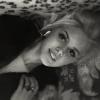
timinmass101
-
Content Count
36 -
Joined
-
Last visited
Reputation Activity
-
timinmass101 liked a post in a topic by prettydrugs in Virgin Radio Station Boycotts Lana
We met Ben outside Lana hotel in Paris on August 25th and he put us on the guest list for the Trianon show that evening, that was later cancelled, then they rescheduled it on September 14th so I travelled again to Paris to see her and it was cancelled again. The only time I felt lucky in my life turned out to be such a nightmare. But Im not mad or anything like that, just disappointed maybe, but I still love Lana so fucking much and respect her even more. I saw so many "fans" being fucking rude and overly very dramatic over this thing. And now Virging start acting lame too? This is so unnecessary. Move on people it's just a fucking show.
-
timinmass101 liked a post in a topic by whitman in Virgin Radio Station Boycotts Lana
She also cancelled the performance on BBC and they didn't make a fuss about it, it's very unprofessional for them to boycott her. An artist can cancell a gig at anytime, it's not uncommon.
It surprised me to see how Lana became such a easy target for those so called fans to attack her. She cancelled an event and suddenly she doesn't care about her fans? ( even though she demonstrated over those last three years to be one of the most kindness and generous person ever). Well, I guess that's what you get when your fans are 16 years old who "love" a singer different every month - they just fail to see her as a person capable of getting sick or having feelings.
-
stadiumarcadium liked a post in a topic by timinmass101 in Lana Del Rey's Ultraviolent, True Love Story
Nicole Sia at Wondering Sound is yet another journalist that has come to the conclusion that our girl is not an act, but rather a real person telling her story through her music, and sometimes painfully honest interviews.
http://www.wonderingsound.com/feature/lana-del-rey-ultraviolence-review/
On Ultraviolence, her second album since her Norma Jeane-style transformation from bottle-blond folk singer to pin-curled indie lightning rod, Lana Del Rey tells us a secret: She was once the Other Woman.
Self-identifying as a mistress may feel like a minor revelation, but it gives context for the self-destructive Lolita persona that’s become Del Rey’s trademark. On one hand, the role can be read as a metaphor — the artist fully embracing her identity as the music industry’s beautiful, dirty shame, derided and cast off by critics while her debut album quietly moved 7 million copies worldwide. Or we can read it as autobiography, the experiences of the woman born Elizabeth Grant bleeding into the Lana Del Rey mythology like a red bra through a translucent collared shirt. Each of her aesthetic choices — the girlish pout, the baby-doll register, the “It’s you, it’s you, it’s all for you” pathology — are the lamentations of a woman forced to define herself through stolen moments and dark corners. It’s a dangerous line to take, to cop to being a home wrecker. No one pities the mistress, and Del Rey knows this. But the singer isn’t concerned with forgiveness. Half confession, half redemption and written from a safe remove, Ultraviolence is, instead, a medallion of recovery.
“I’m finally happy now that you’re gone,” she sings on opener “Cruel World,” flexing her muscular lower register over steady tom-tom rhythm. “I did what I had to do, I found another anyhow.” Album closer “The Other Woman” is even more on-the-nose: “The other woman will always cry herself to sleep/ The other woman will never have his love to keep.”
For a singer repeatedly taken to task for her lack of authenticity, on Ultraviolence Del Rey comes across both honest and unguarded. Produced by the Black Keys’ Dan Auerbach (that’s his indelible wah-wah on “West Coast”) the album strips out the sonic Webdings that plagued Born to Die (the incessant “Blue Jeans” “Shyah!” sample; the self-conscious boom-bap of “Diet Mtn Dew.”) Instead, the album evolves the full-band sound of her Rick Rubin-led 2012 Paradise EP into something raw and unadorned. It’s also steeped in pop history: The symphonic guitar work on “Cruel World” summons visions of Magical Mystery-era Beatles. The fuzzy saxophone drawl on “The Other Woman” recalls Gene Pitney’s “Town Without Pity.” And a more oblique reference to the classics appears on the title track, which cribs lyrics from the Crystals’ “He Hit Me (It Felt Like a Kiss)” — the ’60s pop-progenitor of negative feedback loops in dysfunctional relationships.
And there are subtle nods to her own past: The strings on Ultraviolence‘s title track reuse the chord progression that opened “Born to Die.” The synth glide in the last minute of “West Coast” scans as a cute wink at Born to Die‘s hip-hop non-sequiturs. “Brooklyn Baby,” with its arch references to rare jazz records and hydroponic weed, and “Fucked My Way Up to the Top,” with its tongue-in-cheek title, come off like fuck-yous to the canon of think pieces written in her wake. Del Rey, as this writer was once assured, “reads everything.”
So, she’s most likely caught wind of the backlash to her recent open-for-interpretation sound bite about feminism. “For me, the issue of feminism is just not an interesting concept,” she told The Fader. “Whenever people bring up feminism, I’m like, god. I’m just not really that interested.”
Indelicately put and poorly timed, the quote got her in hot water, critics’ hands already full with young Hollywood star Shailene Woodley distancing herself from the F-word. But let’s be fair: Del Rey’s personal indifference and Woodley’s feminist dodge — “I think the idea of ‘raise women to power, take the men away from the power’ is never going to work out because you need balance,” she told Time — are two different opinions. Perhaps Del Rey, who’s been held over the fire for perpetuating anti-feminist ideas is done with being forced into a conversation she never sought in the first place, just as she’s over her Million Dollar Man.
Or perhaps she’d prefer to let her music speak for her. Because taken as a whole, Ultraviolence is her most feminist work to date. It presents, without judgment, the ecstasy and agony of one woman’s choices — a bird’s-eye view of a woman suffocating, then escaping from under the weight of her man. She treats her former self tenderly: “The Other Woman is perfect where her rival fails,” she sings. But that was then. Now she’s got a cool boyfriend in her band, “but he’s not as cool as me.” And she’s out for money, power and glory. Hallelujah
-
Lirazel liked a post in a topic by timinmass101 in Lana Del Rey's Ultraviolent, True Love Story
Nicole Sia at Wondering Sound is yet another journalist that has come to the conclusion that our girl is not an act, but rather a real person telling her story through her music, and sometimes painfully honest interviews.
http://www.wonderingsound.com/feature/lana-del-rey-ultraviolence-review/
On Ultraviolence, her second album since her Norma Jeane-style transformation from bottle-blond folk singer to pin-curled indie lightning rod, Lana Del Rey tells us a secret: She was once the Other Woman.
Self-identifying as a mistress may feel like a minor revelation, but it gives context for the self-destructive Lolita persona that’s become Del Rey’s trademark. On one hand, the role can be read as a metaphor — the artist fully embracing her identity as the music industry’s beautiful, dirty shame, derided and cast off by critics while her debut album quietly moved 7 million copies worldwide. Or we can read it as autobiography, the experiences of the woman born Elizabeth Grant bleeding into the Lana Del Rey mythology like a red bra through a translucent collared shirt. Each of her aesthetic choices — the girlish pout, the baby-doll register, the “It’s you, it’s you, it’s all for you” pathology — are the lamentations of a woman forced to define herself through stolen moments and dark corners. It’s a dangerous line to take, to cop to being a home wrecker. No one pities the mistress, and Del Rey knows this. But the singer isn’t concerned with forgiveness. Half confession, half redemption and written from a safe remove, Ultraviolence is, instead, a medallion of recovery.
“I’m finally happy now that you’re gone,” she sings on opener “Cruel World,” flexing her muscular lower register over steady tom-tom rhythm. “I did what I had to do, I found another anyhow.” Album closer “The Other Woman” is even more on-the-nose: “The other woman will always cry herself to sleep/ The other woman will never have his love to keep.”
For a singer repeatedly taken to task for her lack of authenticity, on Ultraviolence Del Rey comes across both honest and unguarded. Produced by the Black Keys’ Dan Auerbach (that’s his indelible wah-wah on “West Coast”) the album strips out the sonic Webdings that plagued Born to Die (the incessant “Blue Jeans” “Shyah!” sample; the self-conscious boom-bap of “Diet Mtn Dew.”) Instead, the album evolves the full-band sound of her Rick Rubin-led 2012 Paradise EP into something raw and unadorned. It’s also steeped in pop history: The symphonic guitar work on “Cruel World” summons visions of Magical Mystery-era Beatles. The fuzzy saxophone drawl on “The Other Woman” recalls Gene Pitney’s “Town Without Pity.” And a more oblique reference to the classics appears on the title track, which cribs lyrics from the Crystals’ “He Hit Me (It Felt Like a Kiss)” — the ’60s pop-progenitor of negative feedback loops in dysfunctional relationships.
And there are subtle nods to her own past: The strings on Ultraviolence‘s title track reuse the chord progression that opened “Born to Die.” The synth glide in the last minute of “West Coast” scans as a cute wink at Born to Die‘s hip-hop non-sequiturs. “Brooklyn Baby,” with its arch references to rare jazz records and hydroponic weed, and “Fucked My Way Up to the Top,” with its tongue-in-cheek title, come off like fuck-yous to the canon of think pieces written in her wake. Del Rey, as this writer was once assured, “reads everything.”
So, she’s most likely caught wind of the backlash to her recent open-for-interpretation sound bite about feminism. “For me, the issue of feminism is just not an interesting concept,” she told The Fader. “Whenever people bring up feminism, I’m like, god. I’m just not really that interested.”
Indelicately put and poorly timed, the quote got her in hot water, critics’ hands already full with young Hollywood star Shailene Woodley distancing herself from the F-word. But let’s be fair: Del Rey’s personal indifference and Woodley’s feminist dodge — “I think the idea of ‘raise women to power, take the men away from the power’ is never going to work out because you need balance,” she told Time — are two different opinions. Perhaps Del Rey, who’s been held over the fire for perpetuating anti-feminist ideas is done with being forced into a conversation she never sought in the first place, just as she’s over her Million Dollar Man.
Or perhaps she’d prefer to let her music speak for her. Because taken as a whole, Ultraviolence is her most feminist work to date. It presents, without judgment, the ecstasy and agony of one woman’s choices — a bird’s-eye view of a woman suffocating, then escaping from under the weight of her man. She treats her former self tenderly: “The Other Woman is perfect where her rival fails,” she sings. But that was then. Now she’s got a cool boyfriend in her band, “but he’s not as cool as me.” And she’s out for money, power and glory. Hallelujah
-
National Anthem liked a post in a topic by timinmass101 in If you could change one of Lana's albums...
That's a tough question. I'm not the artist. Its like asking what you would change in Picasso's art. I pretty much accept what she has given us. Really, all of her released songs I like. I know conceptually, everything she does is an art project, so it all matters. Changing the art means changing her. I like how she has been evolving as an artist.
To the question though, there is a lot of really good unrealeased stuff. I am grateful that she has let it all live on YouTube and not pulled it down for copyright infringement. It's unlikely that any off that stuff will ever be officially released since she has moved on past it all, but it would have been cool to see what well produced versions of those songs could have been like. There is like three albums worth of really good material out there. Its what's kept me going between Paradise and Ultraviolence. Assuming there is another album past UV, we are probably looking at 2016 for the next release. The time between UV and whatever comes next will be a very long wait.
-
timinmass101 liked a post in a topic by HEARTCORE in Lana Considering a Re-Release of 'Ultraviolence'
So in the recent Complex magazine interview, which you can read here, the interviewer asked 'What defines being in a good place?', to which Lana responded:
"Feeling really happy and just circumstantially like nothing’s going wrong, which becomes more difficult but that’s only my experience. I think a lot of people think the whole thing is really great. Making Brooklyn my home base for the last two and a half weeks has really helped me out, like I’ve actually started thinking conceptually that I have this addition, an addition to this record that could come really easily. That hasn't happened in a long time. Not since I wrote that Paradise addition to Born to Die, which I really loved."
Could this mean a re-release of Ultraviolence with extra tracks, a la 'Born to Die: The Paradise Edition'?
Thanks to DelReyLane on twitter for pointing this out!
-
timinmass101 liked a post in a topic by Sebastian in Lana Considering a Re-Release of 'Ultraviolence'
Would LOVE another EP!!
-
timinmass101 liked a post in a topic by Viva in Lana Considering a Re-Release of 'Ultraviolence'
Hope so , I love Paradise
I will never understand people who don't want more music
-
timinmass101 liked a post in a topic by TRENCH in Lana Considering a Re-Release of 'Ultraviolence'
more is better
more Lana
more money for her
more music for us
win-win
-
Lanakai liked a post in a topic by timinmass101 in Lana Del Rey's Ultraviolent, True Love Story
Nicole Sia at Wondering Sound is yet another journalist that has come to the conclusion that our girl is not an act, but rather a real person telling her story through her music, and sometimes painfully honest interviews.
http://www.wonderingsound.com/feature/lana-del-rey-ultraviolence-review/
On Ultraviolence, her second album since her Norma Jeane-style transformation from bottle-blond folk singer to pin-curled indie lightning rod, Lana Del Rey tells us a secret: She was once the Other Woman.
Self-identifying as a mistress may feel like a minor revelation, but it gives context for the self-destructive Lolita persona that’s become Del Rey’s trademark. On one hand, the role can be read as a metaphor — the artist fully embracing her identity as the music industry’s beautiful, dirty shame, derided and cast off by critics while her debut album quietly moved 7 million copies worldwide. Or we can read it as autobiography, the experiences of the woman born Elizabeth Grant bleeding into the Lana Del Rey mythology like a red bra through a translucent collared shirt. Each of her aesthetic choices — the girlish pout, the baby-doll register, the “It’s you, it’s you, it’s all for you” pathology — are the lamentations of a woman forced to define herself through stolen moments and dark corners. It’s a dangerous line to take, to cop to being a home wrecker. No one pities the mistress, and Del Rey knows this. But the singer isn’t concerned with forgiveness. Half confession, half redemption and written from a safe remove, Ultraviolence is, instead, a medallion of recovery.
“I’m finally happy now that you’re gone,” she sings on opener “Cruel World,” flexing her muscular lower register over steady tom-tom rhythm. “I did what I had to do, I found another anyhow.” Album closer “The Other Woman” is even more on-the-nose: “The other woman will always cry herself to sleep/ The other woman will never have his love to keep.”
For a singer repeatedly taken to task for her lack of authenticity, on Ultraviolence Del Rey comes across both honest and unguarded. Produced by the Black Keys’ Dan Auerbach (that’s his indelible wah-wah on “West Coast”) the album strips out the sonic Webdings that plagued Born to Die (the incessant “Blue Jeans” “Shyah!” sample; the self-conscious boom-bap of “Diet Mtn Dew.”) Instead, the album evolves the full-band sound of her Rick Rubin-led 2012 Paradise EP into something raw and unadorned. It’s also steeped in pop history: The symphonic guitar work on “Cruel World” summons visions of Magical Mystery-era Beatles. The fuzzy saxophone drawl on “The Other Woman” recalls Gene Pitney’s “Town Without Pity.” And a more oblique reference to the classics appears on the title track, which cribs lyrics from the Crystals’ “He Hit Me (It Felt Like a Kiss)” — the ’60s pop-progenitor of negative feedback loops in dysfunctional relationships.
And there are subtle nods to her own past: The strings on Ultraviolence‘s title track reuse the chord progression that opened “Born to Die.” The synth glide in the last minute of “West Coast” scans as a cute wink at Born to Die‘s hip-hop non-sequiturs. “Brooklyn Baby,” with its arch references to rare jazz records and hydroponic weed, and “Fucked My Way Up to the Top,” with its tongue-in-cheek title, come off like fuck-yous to the canon of think pieces written in her wake. Del Rey, as this writer was once assured, “reads everything.”
So, she’s most likely caught wind of the backlash to her recent open-for-interpretation sound bite about feminism. “For me, the issue of feminism is just not an interesting concept,” she told The Fader. “Whenever people bring up feminism, I’m like, god. I’m just not really that interested.”
Indelicately put and poorly timed, the quote got her in hot water, critics’ hands already full with young Hollywood star Shailene Woodley distancing herself from the F-word. But let’s be fair: Del Rey’s personal indifference and Woodley’s feminist dodge — “I think the idea of ‘raise women to power, take the men away from the power’ is never going to work out because you need balance,” she told Time — are two different opinions. Perhaps Del Rey, who’s been held over the fire for perpetuating anti-feminist ideas is done with being forced into a conversation she never sought in the first place, just as she’s over her Million Dollar Man.
Or perhaps she’d prefer to let her music speak for her. Because taken as a whole, Ultraviolence is her most feminist work to date. It presents, without judgment, the ecstasy and agony of one woman’s choices — a bird’s-eye view of a woman suffocating, then escaping from under the weight of her man. She treats her former self tenderly: “The Other Woman is perfect where her rival fails,” she sings. But that was then. Now she’s got a cool boyfriend in her band, “but he’s not as cool as me.” And she’s out for money, power and glory. Hallelujah
-
Whoopiedoo liked a post in a topic by timinmass101 in Lana Del Rey's Ultraviolent, True Love Story
Nicole Sia at Wondering Sound is yet another journalist that has come to the conclusion that our girl is not an act, but rather a real person telling her story through her music, and sometimes painfully honest interviews.
http://www.wonderingsound.com/feature/lana-del-rey-ultraviolence-review/
On Ultraviolence, her second album since her Norma Jeane-style transformation from bottle-blond folk singer to pin-curled indie lightning rod, Lana Del Rey tells us a secret: She was once the Other Woman.
Self-identifying as a mistress may feel like a minor revelation, but it gives context for the self-destructive Lolita persona that’s become Del Rey’s trademark. On one hand, the role can be read as a metaphor — the artist fully embracing her identity as the music industry’s beautiful, dirty shame, derided and cast off by critics while her debut album quietly moved 7 million copies worldwide. Or we can read it as autobiography, the experiences of the woman born Elizabeth Grant bleeding into the Lana Del Rey mythology like a red bra through a translucent collared shirt. Each of her aesthetic choices — the girlish pout, the baby-doll register, the “It’s you, it’s you, it’s all for you” pathology — are the lamentations of a woman forced to define herself through stolen moments and dark corners. It’s a dangerous line to take, to cop to being a home wrecker. No one pities the mistress, and Del Rey knows this. But the singer isn’t concerned with forgiveness. Half confession, half redemption and written from a safe remove, Ultraviolence is, instead, a medallion of recovery.
“I’m finally happy now that you’re gone,” she sings on opener “Cruel World,” flexing her muscular lower register over steady tom-tom rhythm. “I did what I had to do, I found another anyhow.” Album closer “The Other Woman” is even more on-the-nose: “The other woman will always cry herself to sleep/ The other woman will never have his love to keep.”
For a singer repeatedly taken to task for her lack of authenticity, on Ultraviolence Del Rey comes across both honest and unguarded. Produced by the Black Keys’ Dan Auerbach (that’s his indelible wah-wah on “West Coast”) the album strips out the sonic Webdings that plagued Born to Die (the incessant “Blue Jeans” “Shyah!” sample; the self-conscious boom-bap of “Diet Mtn Dew.”) Instead, the album evolves the full-band sound of her Rick Rubin-led 2012 Paradise EP into something raw and unadorned. It’s also steeped in pop history: The symphonic guitar work on “Cruel World” summons visions of Magical Mystery-era Beatles. The fuzzy saxophone drawl on “The Other Woman” recalls Gene Pitney’s “Town Without Pity.” And a more oblique reference to the classics appears on the title track, which cribs lyrics from the Crystals’ “He Hit Me (It Felt Like a Kiss)” — the ’60s pop-progenitor of negative feedback loops in dysfunctional relationships.
And there are subtle nods to her own past: The strings on Ultraviolence‘s title track reuse the chord progression that opened “Born to Die.” The synth glide in the last minute of “West Coast” scans as a cute wink at Born to Die‘s hip-hop non-sequiturs. “Brooklyn Baby,” with its arch references to rare jazz records and hydroponic weed, and “Fucked My Way Up to the Top,” with its tongue-in-cheek title, come off like fuck-yous to the canon of think pieces written in her wake. Del Rey, as this writer was once assured, “reads everything.”
So, she’s most likely caught wind of the backlash to her recent open-for-interpretation sound bite about feminism. “For me, the issue of feminism is just not an interesting concept,” she told The Fader. “Whenever people bring up feminism, I’m like, god. I’m just not really that interested.”
Indelicately put and poorly timed, the quote got her in hot water, critics’ hands already full with young Hollywood star Shailene Woodley distancing herself from the F-word. But let’s be fair: Del Rey’s personal indifference and Woodley’s feminist dodge — “I think the idea of ‘raise women to power, take the men away from the power’ is never going to work out because you need balance,” she told Time — are two different opinions. Perhaps Del Rey, who’s been held over the fire for perpetuating anti-feminist ideas is done with being forced into a conversation she never sought in the first place, just as she’s over her Million Dollar Man.
Or perhaps she’d prefer to let her music speak for her. Because taken as a whole, Ultraviolence is her most feminist work to date. It presents, without judgment, the ecstasy and agony of one woman’s choices — a bird’s-eye view of a woman suffocating, then escaping from under the weight of her man. She treats her former self tenderly: “The Other Woman is perfect where her rival fails,” she sings. But that was then. Now she’s got a cool boyfriend in her band, “but he’s not as cool as me.” And she’s out for money, power and glory. Hallelujah
-
lavender-sunshine liked a post in a topic by timinmass101 in Lana Del Rey's Ultraviolent, True Love Story
Nicole Sia at Wondering Sound is yet another journalist that has come to the conclusion that our girl is not an act, but rather a real person telling her story through her music, and sometimes painfully honest interviews.
http://www.wonderingsound.com/feature/lana-del-rey-ultraviolence-review/
On Ultraviolence, her second album since her Norma Jeane-style transformation from bottle-blond folk singer to pin-curled indie lightning rod, Lana Del Rey tells us a secret: She was once the Other Woman.
Self-identifying as a mistress may feel like a minor revelation, but it gives context for the self-destructive Lolita persona that’s become Del Rey’s trademark. On one hand, the role can be read as a metaphor — the artist fully embracing her identity as the music industry’s beautiful, dirty shame, derided and cast off by critics while her debut album quietly moved 7 million copies worldwide. Or we can read it as autobiography, the experiences of the woman born Elizabeth Grant bleeding into the Lana Del Rey mythology like a red bra through a translucent collared shirt. Each of her aesthetic choices — the girlish pout, the baby-doll register, the “It’s you, it’s you, it’s all for you” pathology — are the lamentations of a woman forced to define herself through stolen moments and dark corners. It’s a dangerous line to take, to cop to being a home wrecker. No one pities the mistress, and Del Rey knows this. But the singer isn’t concerned with forgiveness. Half confession, half redemption and written from a safe remove, Ultraviolence is, instead, a medallion of recovery.
“I’m finally happy now that you’re gone,” she sings on opener “Cruel World,” flexing her muscular lower register over steady tom-tom rhythm. “I did what I had to do, I found another anyhow.” Album closer “The Other Woman” is even more on-the-nose: “The other woman will always cry herself to sleep/ The other woman will never have his love to keep.”
For a singer repeatedly taken to task for her lack of authenticity, on Ultraviolence Del Rey comes across both honest and unguarded. Produced by the Black Keys’ Dan Auerbach (that’s his indelible wah-wah on “West Coast”) the album strips out the sonic Webdings that plagued Born to Die (the incessant “Blue Jeans” “Shyah!” sample; the self-conscious boom-bap of “Diet Mtn Dew.”) Instead, the album evolves the full-band sound of her Rick Rubin-led 2012 Paradise EP into something raw and unadorned. It’s also steeped in pop history: The symphonic guitar work on “Cruel World” summons visions of Magical Mystery-era Beatles. The fuzzy saxophone drawl on “The Other Woman” recalls Gene Pitney’s “Town Without Pity.” And a more oblique reference to the classics appears on the title track, which cribs lyrics from the Crystals’ “He Hit Me (It Felt Like a Kiss)” — the ’60s pop-progenitor of negative feedback loops in dysfunctional relationships.
And there are subtle nods to her own past: The strings on Ultraviolence‘s title track reuse the chord progression that opened “Born to Die.” The synth glide in the last minute of “West Coast” scans as a cute wink at Born to Die‘s hip-hop non-sequiturs. “Brooklyn Baby,” with its arch references to rare jazz records and hydroponic weed, and “Fucked My Way Up to the Top,” with its tongue-in-cheek title, come off like fuck-yous to the canon of think pieces written in her wake. Del Rey, as this writer was once assured, “reads everything.”
So, she’s most likely caught wind of the backlash to her recent open-for-interpretation sound bite about feminism. “For me, the issue of feminism is just not an interesting concept,” she told The Fader. “Whenever people bring up feminism, I’m like, god. I’m just not really that interested.”
Indelicately put and poorly timed, the quote got her in hot water, critics’ hands already full with young Hollywood star Shailene Woodley distancing herself from the F-word. But let’s be fair: Del Rey’s personal indifference and Woodley’s feminist dodge — “I think the idea of ‘raise women to power, take the men away from the power’ is never going to work out because you need balance,” she told Time — are two different opinions. Perhaps Del Rey, who’s been held over the fire for perpetuating anti-feminist ideas is done with being forced into a conversation she never sought in the first place, just as she’s over her Million Dollar Man.
Or perhaps she’d prefer to let her music speak for her. Because taken as a whole, Ultraviolence is her most feminist work to date. It presents, without judgment, the ecstasy and agony of one woman’s choices — a bird’s-eye view of a woman suffocating, then escaping from under the weight of her man. She treats her former self tenderly: “The Other Woman is perfect where her rival fails,” she sings. But that was then. Now she’s got a cool boyfriend in her band, “but he’s not as cool as me.” And she’s out for money, power and glory. Hallelujah
-
longtimeman liked a post in a topic by timinmass101 in Lana Del Rey's Ultraviolent, True Love Story
Nicole Sia at Wondering Sound is yet another journalist that has come to the conclusion that our girl is not an act, but rather a real person telling her story through her music, and sometimes painfully honest interviews.
http://www.wonderingsound.com/feature/lana-del-rey-ultraviolence-review/
On Ultraviolence, her second album since her Norma Jeane-style transformation from bottle-blond folk singer to pin-curled indie lightning rod, Lana Del Rey tells us a secret: She was once the Other Woman.
Self-identifying as a mistress may feel like a minor revelation, but it gives context for the self-destructive Lolita persona that’s become Del Rey’s trademark. On one hand, the role can be read as a metaphor — the artist fully embracing her identity as the music industry’s beautiful, dirty shame, derided and cast off by critics while her debut album quietly moved 7 million copies worldwide. Or we can read it as autobiography, the experiences of the woman born Elizabeth Grant bleeding into the Lana Del Rey mythology like a red bra through a translucent collared shirt. Each of her aesthetic choices — the girlish pout, the baby-doll register, the “It’s you, it’s you, it’s all for you” pathology — are the lamentations of a woman forced to define herself through stolen moments and dark corners. It’s a dangerous line to take, to cop to being a home wrecker. No one pities the mistress, and Del Rey knows this. But the singer isn’t concerned with forgiveness. Half confession, half redemption and written from a safe remove, Ultraviolence is, instead, a medallion of recovery.
“I’m finally happy now that you’re gone,” she sings on opener “Cruel World,” flexing her muscular lower register over steady tom-tom rhythm. “I did what I had to do, I found another anyhow.” Album closer “The Other Woman” is even more on-the-nose: “The other woman will always cry herself to sleep/ The other woman will never have his love to keep.”
For a singer repeatedly taken to task for her lack of authenticity, on Ultraviolence Del Rey comes across both honest and unguarded. Produced by the Black Keys’ Dan Auerbach (that’s his indelible wah-wah on “West Coast”) the album strips out the sonic Webdings that plagued Born to Die (the incessant “Blue Jeans” “Shyah!” sample; the self-conscious boom-bap of “Diet Mtn Dew.”) Instead, the album evolves the full-band sound of her Rick Rubin-led 2012 Paradise EP into something raw and unadorned. It’s also steeped in pop history: The symphonic guitar work on “Cruel World” summons visions of Magical Mystery-era Beatles. The fuzzy saxophone drawl on “The Other Woman” recalls Gene Pitney’s “Town Without Pity.” And a more oblique reference to the classics appears on the title track, which cribs lyrics from the Crystals’ “He Hit Me (It Felt Like a Kiss)” — the ’60s pop-progenitor of negative feedback loops in dysfunctional relationships.
And there are subtle nods to her own past: The strings on Ultraviolence‘s title track reuse the chord progression that opened “Born to Die.” The synth glide in the last minute of “West Coast” scans as a cute wink at Born to Die‘s hip-hop non-sequiturs. “Brooklyn Baby,” with its arch references to rare jazz records and hydroponic weed, and “Fucked My Way Up to the Top,” with its tongue-in-cheek title, come off like fuck-yous to the canon of think pieces written in her wake. Del Rey, as this writer was once assured, “reads everything.”
So, she’s most likely caught wind of the backlash to her recent open-for-interpretation sound bite about feminism. “For me, the issue of feminism is just not an interesting concept,” she told The Fader. “Whenever people bring up feminism, I’m like, god. I’m just not really that interested.”
Indelicately put and poorly timed, the quote got her in hot water, critics’ hands already full with young Hollywood star Shailene Woodley distancing herself from the F-word. But let’s be fair: Del Rey’s personal indifference and Woodley’s feminist dodge — “I think the idea of ‘raise women to power, take the men away from the power’ is never going to work out because you need balance,” she told Time — are two different opinions. Perhaps Del Rey, who’s been held over the fire for perpetuating anti-feminist ideas is done with being forced into a conversation she never sought in the first place, just as she’s over her Million Dollar Man.
Or perhaps she’d prefer to let her music speak for her. Because taken as a whole, Ultraviolence is her most feminist work to date. It presents, without judgment, the ecstasy and agony of one woman’s choices — a bird’s-eye view of a woman suffocating, then escaping from under the weight of her man. She treats her former self tenderly: “The Other Woman is perfect where her rival fails,” she sings. But that was then. Now she’s got a cool boyfriend in her band, “but he’s not as cool as me.” And she’s out for money, power and glory. Hallelujah
-
kid blue liked a post in a topic by timinmass101 in Lana Del Rey's Ultraviolent, True Love Story
Nicole Sia at Wondering Sound is yet another journalist that has come to the conclusion that our girl is not an act, but rather a real person telling her story through her music, and sometimes painfully honest interviews.
http://www.wonderingsound.com/feature/lana-del-rey-ultraviolence-review/
On Ultraviolence, her second album since her Norma Jeane-style transformation from bottle-blond folk singer to pin-curled indie lightning rod, Lana Del Rey tells us a secret: She was once the Other Woman.
Self-identifying as a mistress may feel like a minor revelation, but it gives context for the self-destructive Lolita persona that’s become Del Rey’s trademark. On one hand, the role can be read as a metaphor — the artist fully embracing her identity as the music industry’s beautiful, dirty shame, derided and cast off by critics while her debut album quietly moved 7 million copies worldwide. Or we can read it as autobiography, the experiences of the woman born Elizabeth Grant bleeding into the Lana Del Rey mythology like a red bra through a translucent collared shirt. Each of her aesthetic choices — the girlish pout, the baby-doll register, the “It’s you, it’s you, it’s all for you” pathology — are the lamentations of a woman forced to define herself through stolen moments and dark corners. It’s a dangerous line to take, to cop to being a home wrecker. No one pities the mistress, and Del Rey knows this. But the singer isn’t concerned with forgiveness. Half confession, half redemption and written from a safe remove, Ultraviolence is, instead, a medallion of recovery.
“I’m finally happy now that you’re gone,” she sings on opener “Cruel World,” flexing her muscular lower register over steady tom-tom rhythm. “I did what I had to do, I found another anyhow.” Album closer “The Other Woman” is even more on-the-nose: “The other woman will always cry herself to sleep/ The other woman will never have his love to keep.”
For a singer repeatedly taken to task for her lack of authenticity, on Ultraviolence Del Rey comes across both honest and unguarded. Produced by the Black Keys’ Dan Auerbach (that’s his indelible wah-wah on “West Coast”) the album strips out the sonic Webdings that plagued Born to Die (the incessant “Blue Jeans” “Shyah!” sample; the self-conscious boom-bap of “Diet Mtn Dew.”) Instead, the album evolves the full-band sound of her Rick Rubin-led 2012 Paradise EP into something raw and unadorned. It’s also steeped in pop history: The symphonic guitar work on “Cruel World” summons visions of Magical Mystery-era Beatles. The fuzzy saxophone drawl on “The Other Woman” recalls Gene Pitney’s “Town Without Pity.” And a more oblique reference to the classics appears on the title track, which cribs lyrics from the Crystals’ “He Hit Me (It Felt Like a Kiss)” — the ’60s pop-progenitor of negative feedback loops in dysfunctional relationships.
And there are subtle nods to her own past: The strings on Ultraviolence‘s title track reuse the chord progression that opened “Born to Die.” The synth glide in the last minute of “West Coast” scans as a cute wink at Born to Die‘s hip-hop non-sequiturs. “Brooklyn Baby,” with its arch references to rare jazz records and hydroponic weed, and “Fucked My Way Up to the Top,” with its tongue-in-cheek title, come off like fuck-yous to the canon of think pieces written in her wake. Del Rey, as this writer was once assured, “reads everything.”
So, she’s most likely caught wind of the backlash to her recent open-for-interpretation sound bite about feminism. “For me, the issue of feminism is just not an interesting concept,” she told The Fader. “Whenever people bring up feminism, I’m like, god. I’m just not really that interested.”
Indelicately put and poorly timed, the quote got her in hot water, critics’ hands already full with young Hollywood star Shailene Woodley distancing herself from the F-word. But let’s be fair: Del Rey’s personal indifference and Woodley’s feminist dodge — “I think the idea of ‘raise women to power, take the men away from the power’ is never going to work out because you need balance,” she told Time — are two different opinions. Perhaps Del Rey, who’s been held over the fire for perpetuating anti-feminist ideas is done with being forced into a conversation she never sought in the first place, just as she’s over her Million Dollar Man.
Or perhaps she’d prefer to let her music speak for her. Because taken as a whole, Ultraviolence is her most feminist work to date. It presents, without judgment, the ecstasy and agony of one woman’s choices — a bird’s-eye view of a woman suffocating, then escaping from under the weight of her man. She treats her former self tenderly: “The Other Woman is perfect where her rival fails,” she sings. But that was then. Now she’s got a cool boyfriend in her band, “but he’s not as cool as me.” And she’s out for money, power and glory. Hallelujah
-
uzzunov liked a post in a topic by timinmass101 in Lana Del Rey's Ultraviolent, True Love Story
Nicole Sia at Wondering Sound is yet another journalist that has come to the conclusion that our girl is not an act, but rather a real person telling her story through her music, and sometimes painfully honest interviews.
http://www.wonderingsound.com/feature/lana-del-rey-ultraviolence-review/
On Ultraviolence, her second album since her Norma Jeane-style transformation from bottle-blond folk singer to pin-curled indie lightning rod, Lana Del Rey tells us a secret: She was once the Other Woman.
Self-identifying as a mistress may feel like a minor revelation, but it gives context for the self-destructive Lolita persona that’s become Del Rey’s trademark. On one hand, the role can be read as a metaphor — the artist fully embracing her identity as the music industry’s beautiful, dirty shame, derided and cast off by critics while her debut album quietly moved 7 million copies worldwide. Or we can read it as autobiography, the experiences of the woman born Elizabeth Grant bleeding into the Lana Del Rey mythology like a red bra through a translucent collared shirt. Each of her aesthetic choices — the girlish pout, the baby-doll register, the “It’s you, it’s you, it’s all for you” pathology — are the lamentations of a woman forced to define herself through stolen moments and dark corners. It’s a dangerous line to take, to cop to being a home wrecker. No one pities the mistress, and Del Rey knows this. But the singer isn’t concerned with forgiveness. Half confession, half redemption and written from a safe remove, Ultraviolence is, instead, a medallion of recovery.
“I’m finally happy now that you’re gone,” she sings on opener “Cruel World,” flexing her muscular lower register over steady tom-tom rhythm. “I did what I had to do, I found another anyhow.” Album closer “The Other Woman” is even more on-the-nose: “The other woman will always cry herself to sleep/ The other woman will never have his love to keep.”
For a singer repeatedly taken to task for her lack of authenticity, on Ultraviolence Del Rey comes across both honest and unguarded. Produced by the Black Keys’ Dan Auerbach (that’s his indelible wah-wah on “West Coast”) the album strips out the sonic Webdings that plagued Born to Die (the incessant “Blue Jeans” “Shyah!” sample; the self-conscious boom-bap of “Diet Mtn Dew.”) Instead, the album evolves the full-band sound of her Rick Rubin-led 2012 Paradise EP into something raw and unadorned. It’s also steeped in pop history: The symphonic guitar work on “Cruel World” summons visions of Magical Mystery-era Beatles. The fuzzy saxophone drawl on “The Other Woman” recalls Gene Pitney’s “Town Without Pity.” And a more oblique reference to the classics appears on the title track, which cribs lyrics from the Crystals’ “He Hit Me (It Felt Like a Kiss)” — the ’60s pop-progenitor of negative feedback loops in dysfunctional relationships.
And there are subtle nods to her own past: The strings on Ultraviolence‘s title track reuse the chord progression that opened “Born to Die.” The synth glide in the last minute of “West Coast” scans as a cute wink at Born to Die‘s hip-hop non-sequiturs. “Brooklyn Baby,” with its arch references to rare jazz records and hydroponic weed, and “Fucked My Way Up to the Top,” with its tongue-in-cheek title, come off like fuck-yous to the canon of think pieces written in her wake. Del Rey, as this writer was once assured, “reads everything.”
So, she’s most likely caught wind of the backlash to her recent open-for-interpretation sound bite about feminism. “For me, the issue of feminism is just not an interesting concept,” she told The Fader. “Whenever people bring up feminism, I’m like, god. I’m just not really that interested.”
Indelicately put and poorly timed, the quote got her in hot water, critics’ hands already full with young Hollywood star Shailene Woodley distancing herself from the F-word. But let’s be fair: Del Rey’s personal indifference and Woodley’s feminist dodge — “I think the idea of ‘raise women to power, take the men away from the power’ is never going to work out because you need balance,” she told Time — are two different opinions. Perhaps Del Rey, who’s been held over the fire for perpetuating anti-feminist ideas is done with being forced into a conversation she never sought in the first place, just as she’s over her Million Dollar Man.
Or perhaps she’d prefer to let her music speak for her. Because taken as a whole, Ultraviolence is her most feminist work to date. It presents, without judgment, the ecstasy and agony of one woman’s choices — a bird’s-eye view of a woman suffocating, then escaping from under the weight of her man. She treats her former self tenderly: “The Other Woman is perfect where her rival fails,” she sings. But that was then. Now she’s got a cool boyfriend in her band, “but he’s not as cool as me.” And she’s out for money, power and glory. Hallelujah
-
Wilde_child liked a post in a topic by timinmass101 in Lana Del Rey's Ultraviolent, True Love Story
Nicole Sia at Wondering Sound is yet another journalist that has come to the conclusion that our girl is not an act, but rather a real person telling her story through her music, and sometimes painfully honest interviews.
http://www.wonderingsound.com/feature/lana-del-rey-ultraviolence-review/
On Ultraviolence, her second album since her Norma Jeane-style transformation from bottle-blond folk singer to pin-curled indie lightning rod, Lana Del Rey tells us a secret: She was once the Other Woman.
Self-identifying as a mistress may feel like a minor revelation, but it gives context for the self-destructive Lolita persona that’s become Del Rey’s trademark. On one hand, the role can be read as a metaphor — the artist fully embracing her identity as the music industry’s beautiful, dirty shame, derided and cast off by critics while her debut album quietly moved 7 million copies worldwide. Or we can read it as autobiography, the experiences of the woman born Elizabeth Grant bleeding into the Lana Del Rey mythology like a red bra through a translucent collared shirt. Each of her aesthetic choices — the girlish pout, the baby-doll register, the “It’s you, it’s you, it’s all for you” pathology — are the lamentations of a woman forced to define herself through stolen moments and dark corners. It’s a dangerous line to take, to cop to being a home wrecker. No one pities the mistress, and Del Rey knows this. But the singer isn’t concerned with forgiveness. Half confession, half redemption and written from a safe remove, Ultraviolence is, instead, a medallion of recovery.
“I’m finally happy now that you’re gone,” she sings on opener “Cruel World,” flexing her muscular lower register over steady tom-tom rhythm. “I did what I had to do, I found another anyhow.” Album closer “The Other Woman” is even more on-the-nose: “The other woman will always cry herself to sleep/ The other woman will never have his love to keep.”
For a singer repeatedly taken to task for her lack of authenticity, on Ultraviolence Del Rey comes across both honest and unguarded. Produced by the Black Keys’ Dan Auerbach (that’s his indelible wah-wah on “West Coast”) the album strips out the sonic Webdings that plagued Born to Die (the incessant “Blue Jeans” “Shyah!” sample; the self-conscious boom-bap of “Diet Mtn Dew.”) Instead, the album evolves the full-band sound of her Rick Rubin-led 2012 Paradise EP into something raw and unadorned. It’s also steeped in pop history: The symphonic guitar work on “Cruel World” summons visions of Magical Mystery-era Beatles. The fuzzy saxophone drawl on “The Other Woman” recalls Gene Pitney’s “Town Without Pity.” And a more oblique reference to the classics appears on the title track, which cribs lyrics from the Crystals’ “He Hit Me (It Felt Like a Kiss)” — the ’60s pop-progenitor of negative feedback loops in dysfunctional relationships.
And there are subtle nods to her own past: The strings on Ultraviolence‘s title track reuse the chord progression that opened “Born to Die.” The synth glide in the last minute of “West Coast” scans as a cute wink at Born to Die‘s hip-hop non-sequiturs. “Brooklyn Baby,” with its arch references to rare jazz records and hydroponic weed, and “Fucked My Way Up to the Top,” with its tongue-in-cheek title, come off like fuck-yous to the canon of think pieces written in her wake. Del Rey, as this writer was once assured, “reads everything.”
So, she’s most likely caught wind of the backlash to her recent open-for-interpretation sound bite about feminism. “For me, the issue of feminism is just not an interesting concept,” she told The Fader. “Whenever people bring up feminism, I’m like, god. I’m just not really that interested.”
Indelicately put and poorly timed, the quote got her in hot water, critics’ hands already full with young Hollywood star Shailene Woodley distancing herself from the F-word. But let’s be fair: Del Rey’s personal indifference and Woodley’s feminist dodge — “I think the idea of ‘raise women to power, take the men away from the power’ is never going to work out because you need balance,” she told Time — are two different opinions. Perhaps Del Rey, who’s been held over the fire for perpetuating anti-feminist ideas is done with being forced into a conversation she never sought in the first place, just as she’s over her Million Dollar Man.
Or perhaps she’d prefer to let her music speak for her. Because taken as a whole, Ultraviolence is her most feminist work to date. It presents, without judgment, the ecstasy and agony of one woman’s choices — a bird’s-eye view of a woman suffocating, then escaping from under the weight of her man. She treats her former self tenderly: “The Other Woman is perfect where her rival fails,” she sings. But that was then. Now she’s got a cool boyfriend in her band, “but he’s not as cool as me.” And she’s out for money, power and glory. Hallelujah
-
timinmass101 liked a post in a topic by allseeing in Lana Del Rey's Ultraviolent, True Love Story
Ultraviolence is her most feminist work to date
-
slang liked a post in a topic by timinmass101 in Lana Del Rey's Ultraviolent, True Love Story
Nicole Sia at Wondering Sound is yet another journalist that has come to the conclusion that our girl is not an act, but rather a real person telling her story through her music, and sometimes painfully honest interviews.
http://www.wonderingsound.com/feature/lana-del-rey-ultraviolence-review/
On Ultraviolence, her second album since her Norma Jeane-style transformation from bottle-blond folk singer to pin-curled indie lightning rod, Lana Del Rey tells us a secret: She was once the Other Woman.
Self-identifying as a mistress may feel like a minor revelation, but it gives context for the self-destructive Lolita persona that’s become Del Rey’s trademark. On one hand, the role can be read as a metaphor — the artist fully embracing her identity as the music industry’s beautiful, dirty shame, derided and cast off by critics while her debut album quietly moved 7 million copies worldwide. Or we can read it as autobiography, the experiences of the woman born Elizabeth Grant bleeding into the Lana Del Rey mythology like a red bra through a translucent collared shirt. Each of her aesthetic choices — the girlish pout, the baby-doll register, the “It’s you, it’s you, it’s all for you” pathology — are the lamentations of a woman forced to define herself through stolen moments and dark corners. It’s a dangerous line to take, to cop to being a home wrecker. No one pities the mistress, and Del Rey knows this. But the singer isn’t concerned with forgiveness. Half confession, half redemption and written from a safe remove, Ultraviolence is, instead, a medallion of recovery.
“I’m finally happy now that you’re gone,” she sings on opener “Cruel World,” flexing her muscular lower register over steady tom-tom rhythm. “I did what I had to do, I found another anyhow.” Album closer “The Other Woman” is even more on-the-nose: “The other woman will always cry herself to sleep/ The other woman will never have his love to keep.”
For a singer repeatedly taken to task for her lack of authenticity, on Ultraviolence Del Rey comes across both honest and unguarded. Produced by the Black Keys’ Dan Auerbach (that’s his indelible wah-wah on “West Coast”) the album strips out the sonic Webdings that plagued Born to Die (the incessant “Blue Jeans” “Shyah!” sample; the self-conscious boom-bap of “Diet Mtn Dew.”) Instead, the album evolves the full-band sound of her Rick Rubin-led 2012 Paradise EP into something raw and unadorned. It’s also steeped in pop history: The symphonic guitar work on “Cruel World” summons visions of Magical Mystery-era Beatles. The fuzzy saxophone drawl on “The Other Woman” recalls Gene Pitney’s “Town Without Pity.” And a more oblique reference to the classics appears on the title track, which cribs lyrics from the Crystals’ “He Hit Me (It Felt Like a Kiss)” — the ’60s pop-progenitor of negative feedback loops in dysfunctional relationships.
And there are subtle nods to her own past: The strings on Ultraviolence‘s title track reuse the chord progression that opened “Born to Die.” The synth glide in the last minute of “West Coast” scans as a cute wink at Born to Die‘s hip-hop non-sequiturs. “Brooklyn Baby,” with its arch references to rare jazz records and hydroponic weed, and “Fucked My Way Up to the Top,” with its tongue-in-cheek title, come off like fuck-yous to the canon of think pieces written in her wake. Del Rey, as this writer was once assured, “reads everything.”
So, she’s most likely caught wind of the backlash to her recent open-for-interpretation sound bite about feminism. “For me, the issue of feminism is just not an interesting concept,” she told The Fader. “Whenever people bring up feminism, I’m like, god. I’m just not really that interested.”
Indelicately put and poorly timed, the quote got her in hot water, critics’ hands already full with young Hollywood star Shailene Woodley distancing herself from the F-word. But let’s be fair: Del Rey’s personal indifference and Woodley’s feminist dodge — “I think the idea of ‘raise women to power, take the men away from the power’ is never going to work out because you need balance,” she told Time — are two different opinions. Perhaps Del Rey, who’s been held over the fire for perpetuating anti-feminist ideas is done with being forced into a conversation she never sought in the first place, just as she’s over her Million Dollar Man.
Or perhaps she’d prefer to let her music speak for her. Because taken as a whole, Ultraviolence is her most feminist work to date. It presents, without judgment, the ecstasy and agony of one woman’s choices — a bird’s-eye view of a woman suffocating, then escaping from under the weight of her man. She treats her former self tenderly: “The Other Woman is perfect where her rival fails,” she sings. But that was then. Now she’s got a cool boyfriend in her band, “but he’s not as cool as me.” And she’s out for money, power and glory. Hallelujah
-
ednafrau liked a post in a topic by timinmass101 in Lana Del Rey's Ultraviolent, True Love Story
Nicole Sia at Wondering Sound is yet another journalist that has come to the conclusion that our girl is not an act, but rather a real person telling her story through her music, and sometimes painfully honest interviews.
http://www.wonderingsound.com/feature/lana-del-rey-ultraviolence-review/
On Ultraviolence, her second album since her Norma Jeane-style transformation from bottle-blond folk singer to pin-curled indie lightning rod, Lana Del Rey tells us a secret: She was once the Other Woman.
Self-identifying as a mistress may feel like a minor revelation, but it gives context for the self-destructive Lolita persona that’s become Del Rey’s trademark. On one hand, the role can be read as a metaphor — the artist fully embracing her identity as the music industry’s beautiful, dirty shame, derided and cast off by critics while her debut album quietly moved 7 million copies worldwide. Or we can read it as autobiography, the experiences of the woman born Elizabeth Grant bleeding into the Lana Del Rey mythology like a red bra through a translucent collared shirt. Each of her aesthetic choices — the girlish pout, the baby-doll register, the “It’s you, it’s you, it’s all for you” pathology — are the lamentations of a woman forced to define herself through stolen moments and dark corners. It’s a dangerous line to take, to cop to being a home wrecker. No one pities the mistress, and Del Rey knows this. But the singer isn’t concerned with forgiveness. Half confession, half redemption and written from a safe remove, Ultraviolence is, instead, a medallion of recovery.
“I’m finally happy now that you’re gone,” she sings on opener “Cruel World,” flexing her muscular lower register over steady tom-tom rhythm. “I did what I had to do, I found another anyhow.” Album closer “The Other Woman” is even more on-the-nose: “The other woman will always cry herself to sleep/ The other woman will never have his love to keep.”
For a singer repeatedly taken to task for her lack of authenticity, on Ultraviolence Del Rey comes across both honest and unguarded. Produced by the Black Keys’ Dan Auerbach (that’s his indelible wah-wah on “West Coast”) the album strips out the sonic Webdings that plagued Born to Die (the incessant “Blue Jeans” “Shyah!” sample; the self-conscious boom-bap of “Diet Mtn Dew.”) Instead, the album evolves the full-band sound of her Rick Rubin-led 2012 Paradise EP into something raw and unadorned. It’s also steeped in pop history: The symphonic guitar work on “Cruel World” summons visions of Magical Mystery-era Beatles. The fuzzy saxophone drawl on “The Other Woman” recalls Gene Pitney’s “Town Without Pity.” And a more oblique reference to the classics appears on the title track, which cribs lyrics from the Crystals’ “He Hit Me (It Felt Like a Kiss)” — the ’60s pop-progenitor of negative feedback loops in dysfunctional relationships.
And there are subtle nods to her own past: The strings on Ultraviolence‘s title track reuse the chord progression that opened “Born to Die.” The synth glide in the last minute of “West Coast” scans as a cute wink at Born to Die‘s hip-hop non-sequiturs. “Brooklyn Baby,” with its arch references to rare jazz records and hydroponic weed, and “Fucked My Way Up to the Top,” with its tongue-in-cheek title, come off like fuck-yous to the canon of think pieces written in her wake. Del Rey, as this writer was once assured, “reads everything.”
So, she’s most likely caught wind of the backlash to her recent open-for-interpretation sound bite about feminism. “For me, the issue of feminism is just not an interesting concept,” she told The Fader. “Whenever people bring up feminism, I’m like, god. I’m just not really that interested.”
Indelicately put and poorly timed, the quote got her in hot water, critics’ hands already full with young Hollywood star Shailene Woodley distancing herself from the F-word. But let’s be fair: Del Rey’s personal indifference and Woodley’s feminist dodge — “I think the idea of ‘raise women to power, take the men away from the power’ is never going to work out because you need balance,” she told Time — are two different opinions. Perhaps Del Rey, who’s been held over the fire for perpetuating anti-feminist ideas is done with being forced into a conversation she never sought in the first place, just as she’s over her Million Dollar Man.
Or perhaps she’d prefer to let her music speak for her. Because taken as a whole, Ultraviolence is her most feminist work to date. It presents, without judgment, the ecstasy and agony of one woman’s choices — a bird’s-eye view of a woman suffocating, then escaping from under the weight of her man. She treats her former self tenderly: “The Other Woman is perfect where her rival fails,” she sings. But that was then. Now she’s got a cool boyfriend in her band, “but he’s not as cool as me.” And she’s out for money, power and glory. Hallelujah
-
timinmass101 liked a post in a topic in Ultraviolence Audio Commentary
Ultraviolence - Audio Commentary. I added song snippets in the background, because I'm not the copy/paste kinda guy. http://picosong.com/PpAj
-
timinmass101 liked a post in a topic by Ari in 18 Rolling Stone interview questions that didnt make it into the cover story: So Legit and age change mentioned
The comments are rough.
-
Angel Forever liked a post in a topic by timinmass101 in Lana Del Rey's Ultraviolent, True Love Story
Nicole Sia at Wondering Sound is yet another journalist that has come to the conclusion that our girl is not an act, but rather a real person telling her story through her music, and sometimes painfully honest interviews.
http://www.wonderingsound.com/feature/lana-del-rey-ultraviolence-review/
On Ultraviolence, her second album since her Norma Jeane-style transformation from bottle-blond folk singer to pin-curled indie lightning rod, Lana Del Rey tells us a secret: She was once the Other Woman.
Self-identifying as a mistress may feel like a minor revelation, but it gives context for the self-destructive Lolita persona that’s become Del Rey’s trademark. On one hand, the role can be read as a metaphor — the artist fully embracing her identity as the music industry’s beautiful, dirty shame, derided and cast off by critics while her debut album quietly moved 7 million copies worldwide. Or we can read it as autobiography, the experiences of the woman born Elizabeth Grant bleeding into the Lana Del Rey mythology like a red bra through a translucent collared shirt. Each of her aesthetic choices — the girlish pout, the baby-doll register, the “It’s you, it’s you, it’s all for you” pathology — are the lamentations of a woman forced to define herself through stolen moments and dark corners. It’s a dangerous line to take, to cop to being a home wrecker. No one pities the mistress, and Del Rey knows this. But the singer isn’t concerned with forgiveness. Half confession, half redemption and written from a safe remove, Ultraviolence is, instead, a medallion of recovery.
“I’m finally happy now that you’re gone,” she sings on opener “Cruel World,” flexing her muscular lower register over steady tom-tom rhythm. “I did what I had to do, I found another anyhow.” Album closer “The Other Woman” is even more on-the-nose: “The other woman will always cry herself to sleep/ The other woman will never have his love to keep.”
For a singer repeatedly taken to task for her lack of authenticity, on Ultraviolence Del Rey comes across both honest and unguarded. Produced by the Black Keys’ Dan Auerbach (that’s his indelible wah-wah on “West Coast”) the album strips out the sonic Webdings that plagued Born to Die (the incessant “Blue Jeans” “Shyah!” sample; the self-conscious boom-bap of “Diet Mtn Dew.”) Instead, the album evolves the full-band sound of her Rick Rubin-led 2012 Paradise EP into something raw and unadorned. It’s also steeped in pop history: The symphonic guitar work on “Cruel World” summons visions of Magical Mystery-era Beatles. The fuzzy saxophone drawl on “The Other Woman” recalls Gene Pitney’s “Town Without Pity.” And a more oblique reference to the classics appears on the title track, which cribs lyrics from the Crystals’ “He Hit Me (It Felt Like a Kiss)” — the ’60s pop-progenitor of negative feedback loops in dysfunctional relationships.
And there are subtle nods to her own past: The strings on Ultraviolence‘s title track reuse the chord progression that opened “Born to Die.” The synth glide in the last minute of “West Coast” scans as a cute wink at Born to Die‘s hip-hop non-sequiturs. “Brooklyn Baby,” with its arch references to rare jazz records and hydroponic weed, and “Fucked My Way Up to the Top,” with its tongue-in-cheek title, come off like fuck-yous to the canon of think pieces written in her wake. Del Rey, as this writer was once assured, “reads everything.”
So, she’s most likely caught wind of the backlash to her recent open-for-interpretation sound bite about feminism. “For me, the issue of feminism is just not an interesting concept,” she told The Fader. “Whenever people bring up feminism, I’m like, god. I’m just not really that interested.”
Indelicately put and poorly timed, the quote got her in hot water, critics’ hands already full with young Hollywood star Shailene Woodley distancing herself from the F-word. But let’s be fair: Del Rey’s personal indifference and Woodley’s feminist dodge — “I think the idea of ‘raise women to power, take the men away from the power’ is never going to work out because you need balance,” she told Time — are two different opinions. Perhaps Del Rey, who’s been held over the fire for perpetuating anti-feminist ideas is done with being forced into a conversation she never sought in the first place, just as she’s over her Million Dollar Man.
Or perhaps she’d prefer to let her music speak for her. Because taken as a whole, Ultraviolence is her most feminist work to date. It presents, without judgment, the ecstasy and agony of one woman’s choices — a bird’s-eye view of a woman suffocating, then escaping from under the weight of her man. She treats her former self tenderly: “The Other Woman is perfect where her rival fails,” she sings. But that was then. Now she’s got a cool boyfriend in her band, “but he’s not as cool as me.” And she’s out for money, power and glory. Hallelujah
-
timinmass101 liked a post in a topic by evilentity in Lana covers "Complex" magazine - August/September Issue
CONTINUED
Nice work LanaBoarders.
The inspiration behind the Detroit reference in "Guns and Roses"?
Paging
Acceptance. Realistic expectations. Mellow. Dare I say it, shades of cool.
I'm still somewhat baffled by the fact that her audience is mostly teen and early twenty-something girls and gays. Sometimes I wonder what the demographics would be if BTD hadn't had the hip-hop beats and samples.
FIN
-
PrettyBaby liked a post in a topic by timinmass101 in Lana Del Rey covers Rolling Stone August 2014
I’ve read the Rolling Stone article several times. I think it was an awesome interview, well written, and very illuminating. More of the puzzle of who Lana Del Rey is gets filled in. I also think that the article was respectful of Lana. Brian Hiatt did not cast her in a poor light unlike the Guardian article that sensationalized her “death wish”. I seriously don’t think there was anything wrong with the behavior of either Lana or the reporter Brian Hiatt. They were both doing their jobs. Hers for Interscope doing promotions (which she hates) and his as a reporter trying to sell magazines.
A couple of thoughts come to mind.
First: Lana is an artist. She owes us nothing. Artists make art for themselves. We get to listen to her music, or not. She owes us no explanations of song meanings or anything else we wish we knew. As the listening public, we get to interpret her music as seen through our own internal filters and life experiences. This has always been the relationship between artist and public.
Second: it was an incredibly long interview. A day and a half? 10 hours? Can we safely assume this was her longest interview to date? As an introvert, she must have been feeling drained of energy, vulnerable and exposed by the time the interview started to end. Clearly Hiatt knew he was pushing the envelope with the questions he started asking (he as much says so), and as soon as he went too far, he tried to recover. But, it was too late. She’s an introvert. She is sensitive. Her feelings get hurt easily. That’s who she is.
I don’t see that as a fault of Lana, or Hiatt. She was done. Simple. I don’t see the histrionics, or bad behavior or unprofessionalism. She politely got up and escorted him out.
And really, think about it. Would you have wanted to hear another 3 hours of her being in a hurt and defensive mood?
Third: Where were the questions about the music? I mean, this is Rolling Stone magazine, and he is interviewing a singer-songwriter. While I enjoy the deeply personal questions as illuminating knowledge for this intriguing woman, where are the questions about the actual music? Ok, he asked her about the meaning of FMWTTT and Ultraviolence, but that were more personal questions than musical questions.
Finally: I don’t want her to change. Like it or not, this is who she is. She is eccentric. She is sensitive. She is probably prone to existential depressions, that go as quickly as they come. She has a deep inner world. She is clearly intelligent. And at the end of it all, she makes fucking brilliant music. That’s all that matters.
-
ednafrau liked a post in a topic by timinmass101 in Lana Del Rey covers Rolling Stone August 2014
I’ve read the Rolling Stone article several times. I think it was an awesome interview, well written, and very illuminating. More of the puzzle of who Lana Del Rey is gets filled in. I also think that the article was respectful of Lana. Brian Hiatt did not cast her in a poor light unlike the Guardian article that sensationalized her “death wish”. I seriously don’t think there was anything wrong with the behavior of either Lana or the reporter Brian Hiatt. They were both doing their jobs. Hers for Interscope doing promotions (which she hates) and his as a reporter trying to sell magazines.
A couple of thoughts come to mind.
First: Lana is an artist. She owes us nothing. Artists make art for themselves. We get to listen to her music, or not. She owes us no explanations of song meanings or anything else we wish we knew. As the listening public, we get to interpret her music as seen through our own internal filters and life experiences. This has always been the relationship between artist and public.
Second: it was an incredibly long interview. A day and a half? 10 hours? Can we safely assume this was her longest interview to date? As an introvert, she must have been feeling drained of energy, vulnerable and exposed by the time the interview started to end. Clearly Hiatt knew he was pushing the envelope with the questions he started asking (he as much says so), and as soon as he went too far, he tried to recover. But, it was too late. She’s an introvert. She is sensitive. Her feelings get hurt easily. That’s who she is.
I don’t see that as a fault of Lana, or Hiatt. She was done. Simple. I don’t see the histrionics, or bad behavior or unprofessionalism. She politely got up and escorted him out.
And really, think about it. Would you have wanted to hear another 3 hours of her being in a hurt and defensive mood?
Third: Where were the questions about the music? I mean, this is Rolling Stone magazine, and he is interviewing a singer-songwriter. While I enjoy the deeply personal questions as illuminating knowledge for this intriguing woman, where are the questions about the actual music? Ok, he asked her about the meaning of FMWTTT and Ultraviolence, but that were more personal questions than musical questions.
Finally: I don’t want her to change. Like it or not, this is who she is. She is eccentric. She is sensitive. She is probably prone to existential depressions, that go as quickly as they come. She has a deep inner world. She is clearly intelligent. And at the end of it all, she makes fucking brilliant music. That’s all that matters.














